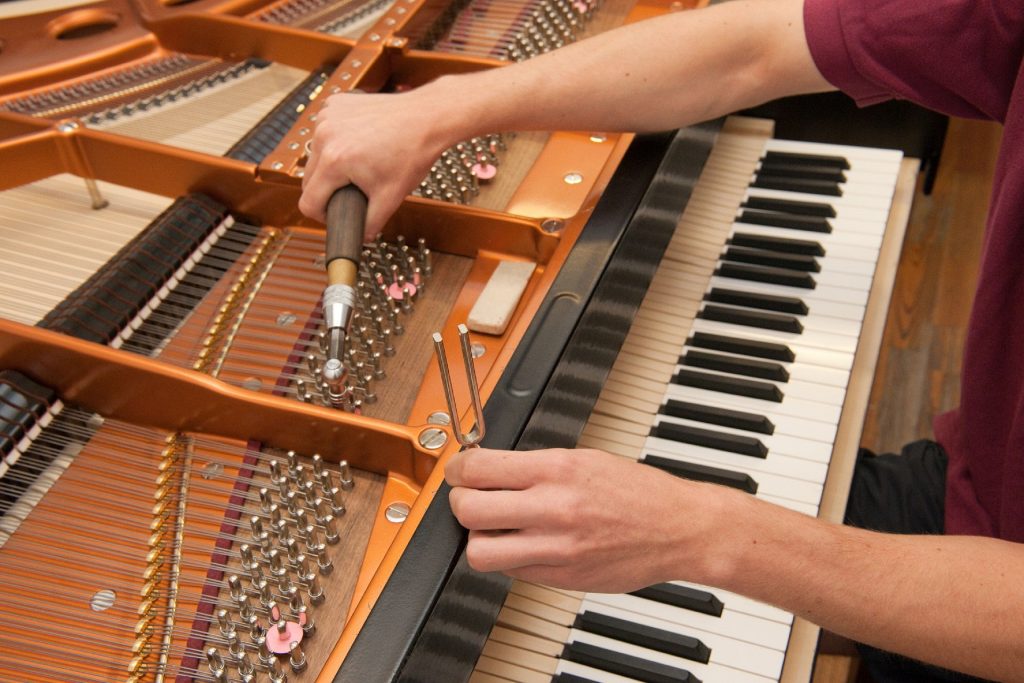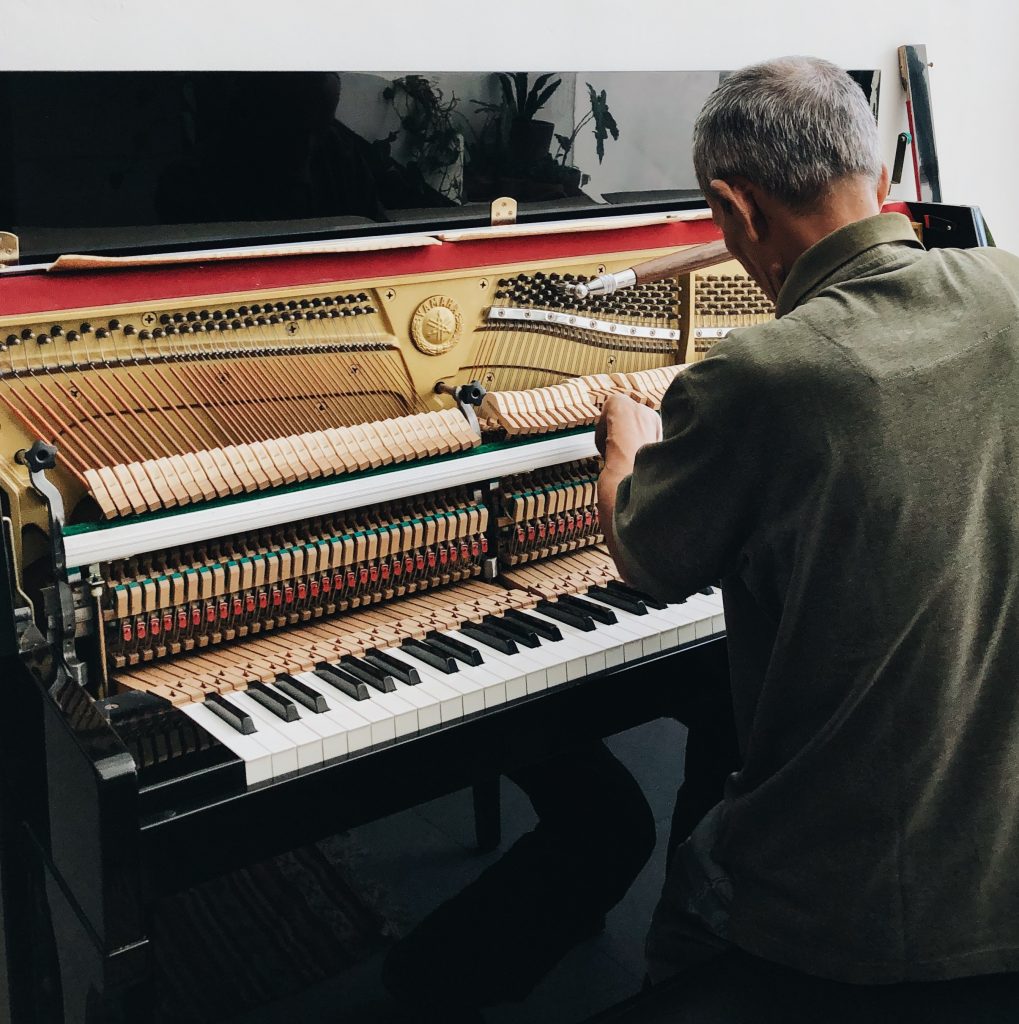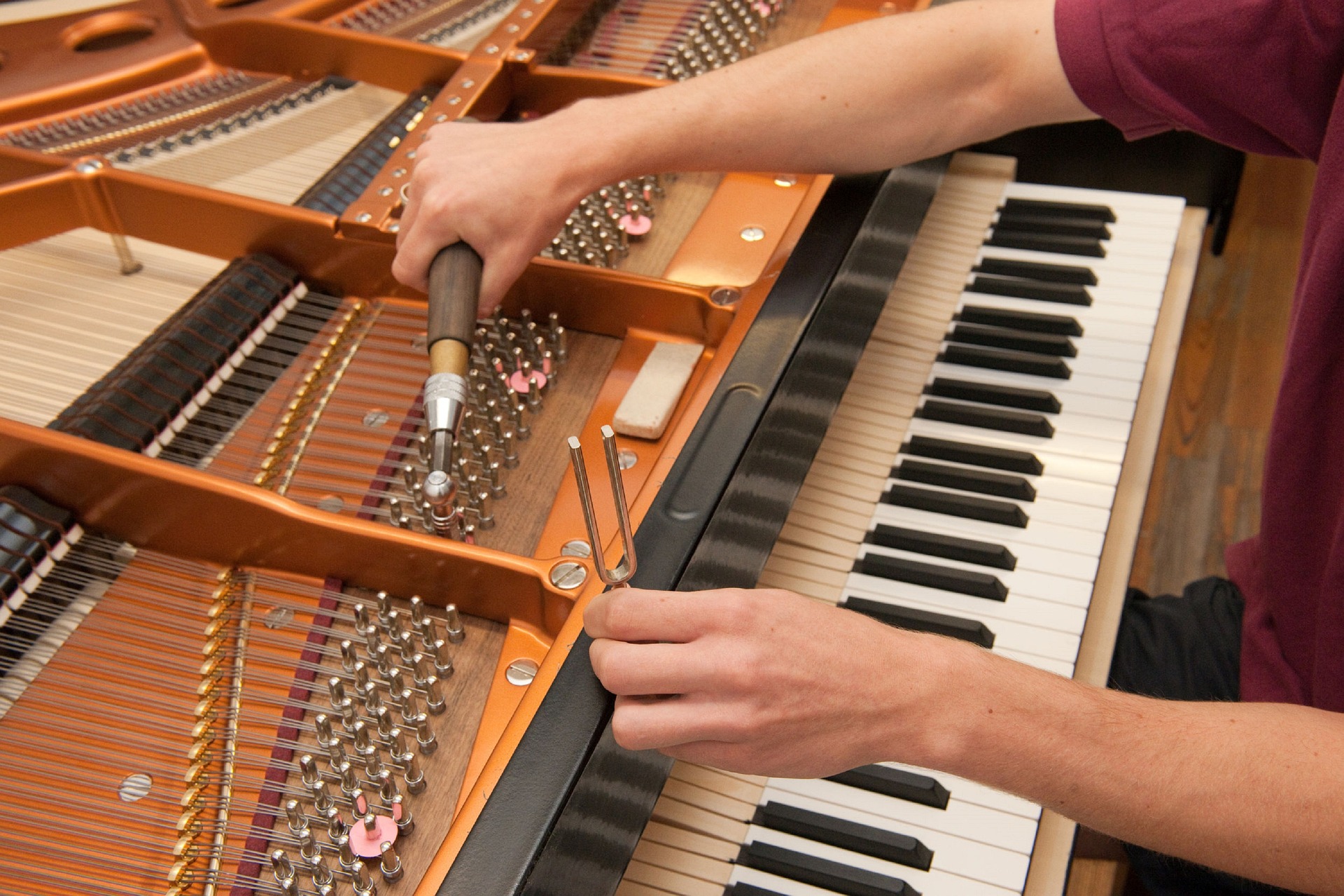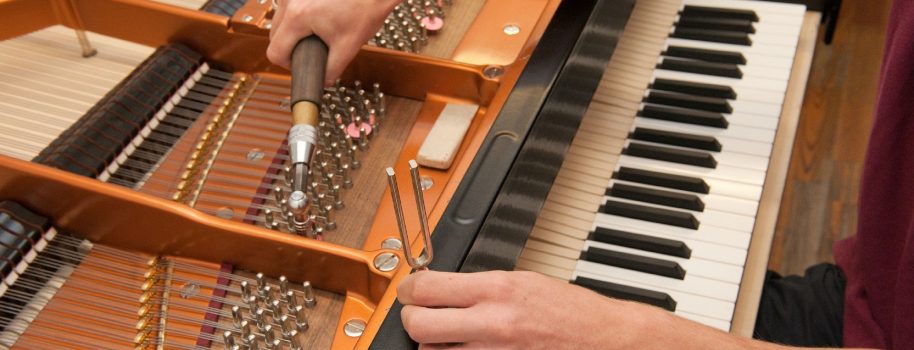In the world of music, the piano stands out as a majestic instrument, capable of producing a wide array of sounds that can convey a spectrum of emotions. However, the beauty of a piano’s sound is heavily reliant on its tuning, a skill that requires not only technical expertise but also a deep understanding of the instrument and its player. In this article, we delve into the attributes of a good piano tuner, a professional whose work can profoundly impact the musical experience.

1. A Master of Craft and Understanding
The foremost attribute of a commendable piano tuner is their profound skill set, paired with an empathetic understanding of both the instrument and its owner. Tuning a piano is not just about adjusting it to the right pitch; it’s about feeling the instrument, recognizing its unique characteristics, and ensuring it meets the player’s needs. A tuner who listens to your concerns and preferences demonstrates that they value the personal connection between you and your piano, ensuring a more tailored and satisfying tuning process.
2. The Power of Recommendations
A tuner’s reputation, built on the satisfaction of their customers, speaks volumes. Recommendations from other users are a testament to a tuner’s expertise, reliability, and the quality of their service. When a tuner comes highly recommended, it indicates that they have consistently met or exceeded the expectations of their clientele, making them a trustworthy choice for your piano tuning needs.
3. An Educator at Heart
A proficient tuner does more than adjust your piano; they educate you about the instrument’s maintenance, including the importance of frequent tunings and the effects of humidity and temperature. Understanding why a piano may fall out of tune and how to mitigate these factors is crucial for maintaining its sound quality. A good tuner will share this knowledge, empowering you to care for your piano more effectively.
4. Commitment to Continuous Learning
The landscape of piano technology is ever-evolving, and the best technicians are those who dedicate themselves to lifelong learning. Attending conventions and educational sessions year after year is a sign of a tuner’s commitment to staying at the forefront of their craft. Conversely, those who claim to “know it all” may lack the openness to new methods and technologies that could enhance their tuning precision.

5. The Proof Is in the Performance
Ultimately, the true measure of a piano tuner’s skill is the satisfaction you feel with the tuning once they’ve finished. It may require hiring different technicians over time to find the one whose work resonates best with you and your instrument. The ideal tuner is the one whose results make you eager to call them back for your next tuning session.
6. Tuning Quality and Stability
The ultimate indicator of a tuner’s competence is the stability and quality of the tuning. After a tuning session, the piano should not only sound in tune but also maintain its tuning when played with vigor. A tuner skilled in setting the pins and strings correctly ensures the piano can withstand enthusiastic play without losing its harmony.
Conclusion
Choosing the right piano tuner is a blend of art and science, requiring consideration of their technical skills, educational ethos, reputation, and the tangible results they deliver. The best tuner is not defined by a single attribute but by a combination of factors that align with your needs and expectations. In the end, the right tuner for you is the one who leaves your piano sounding its best, inviting you to experience the joy of music at its finest.


